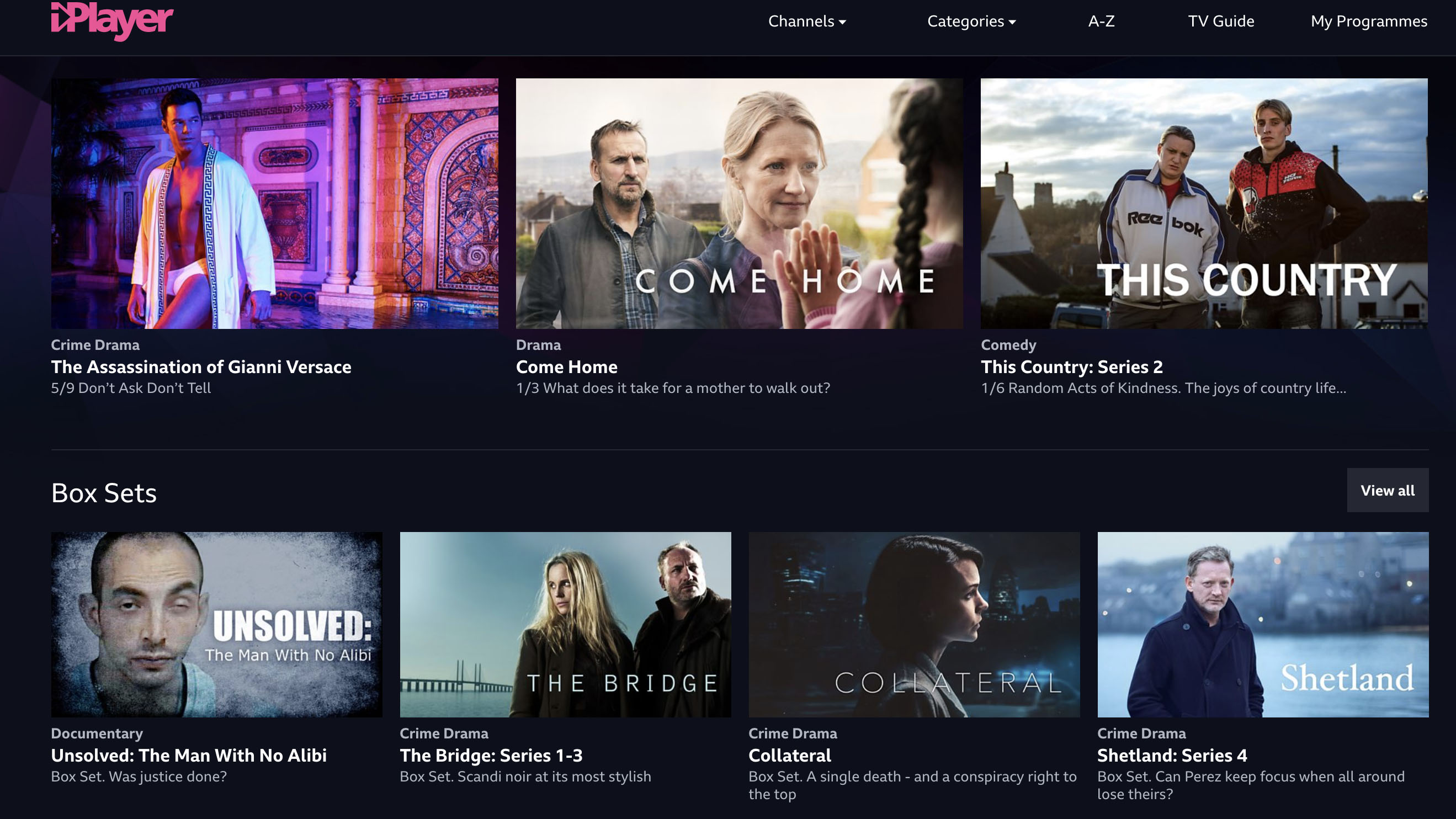Netflix and Spotify are snapping up the iPlayer's younger audience says the BBC
The UK's state broadcaster admits Netflix is taking its viewers

The BBC has released its annual report, which digs into how the UK's state broadcaster is doing across the board, and one hard truth that has emerged is that the might of Netflix and other streaming services such as Spotify are hitting it, and hard.
While the BBC's iPlayer streaming and catch-up TV service is seen as one of the most innovating on-demand platforms in the world, it's clearly not immune to Netflix and its apparently endless pile of cash.
In the report, the BBC offers a stark warning that the media landscape is changing, and is increasingly being dominated by these new-ish streaming giants.
"Major new entrants such as Amazon and Netflix have meant that the global media market is increasingly dominated by a small number of US-based media giants with extraordinary creative and financial firepower," the report says.
This shifting landscape has been embraced, perhaps not surprisingly, by the younger generation, and this has kickstarted an effort by the BBC to reinvent itself.
"We know that the consumption habits of younger and older audiences are increasingly different. Children are at the forefront of these changes," explains the report.
"Young adults watch less television than older people, and listen to much less radio. In just a few years online-only video has grown from 5% of young people’s consumption to 25%.
Get daily insight, inspiration and deals in your inbox
Sign up for breaking news, reviews, opinion, top tech deals, and more.
"Music streaming has gone from around 10% to around 30% of listening. We know that where children are leading the way, and where young audiences are now, older audiences will likely follow."
Down with the kids
The BBC also notes that for the first time 15-to-34-year-olds are preferring to 'tune in' to the likes of Spotify, rather than listen to BBC radio channels through its own iPlayer Radio app, and it's hoping to counter this trend by making its app a better place for podcasts.
"Reinvention is a process that is well underway for radio too. Later this year we will begin to transform what we know as BBC iPlayer Radio to provide a bolder and more intuitive mobile platform for our astonishing array of radio and audio content, including our growing range of podcasts," it states.
When it comes to TV content, again the BBC admits that it's losing the younger audience, believing that it's at risk of being overtaken – noting that 82% of children go to YouTube for on-demand content, while half to Netflix and only 29% use BBC iPlayer.
In another stark warning the BBC's own recent estimates suggest that the 16-34 age group spent similar amounts of time with BBC One, ITV and Netflix a week – around two hours a week for each. But when it comes to the key 16-24 metric, they spend more time with Netflix than all of BBC TV combined.
Again it has a plan, and that is to make the iPlayer more of a 'destination' than a tool for viewing its content. This is something it had talked about doing by 2020, but perhaps the process will now be accelerated.
"Personalisation is now right at the heart of the design and already 15m people monthly sign in so that we can provide them with the tailored service they increasingly expect," reads the report.
"This year will see further improvements for iPlayer, including enhancements to the user experience, more personalisation, more live content and we continue to look at increasing the availability of some content."
Clearly the BBC is keen to turn the situation around, as it warns that with the Netflixes of the world buying up all the big shows "the volume and breadth of British content that British audiences rely upon is now under serious threat".
- Want to watch the BBC on a fancy TV? Then try these Best TVs for under £1,000.
- Peaky Blinders season 6 release date: everything you need to know
Marc Chacksfield is the Editor In Chief, Shortlist.com at DC Thomson. He started out life as a movie writer for numerous (now defunct) magazines and soon found himself online - editing a gaggle of gadget sites, including TechRadar, Digital Camera World and Tom's Guide UK. At Shortlist you'll find him mostly writing about movies and tech, so no change there then.
